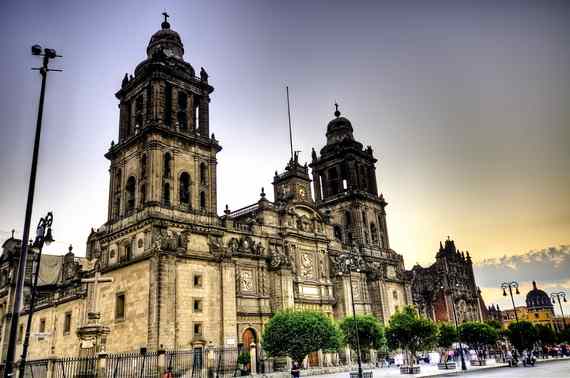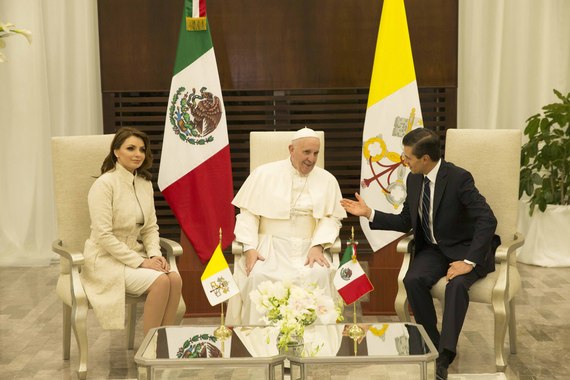
In May 17, 2016, Mexican president Enrique Peña Nieto, presented to congress a series of initiatives aimed at promoting greater inclusion and equality in defense of the LGBT community. Among his proposals was the constitutional reform to legalize same-sex marriage across the country, in an attempt "to recognize as a human right that people can enter into marriage without any kind of discrimination".
As of today, only nine states recognize same-sex marriage in spite of Mexico's Supreme Court decision last year that it was unconstitutional for the country's states to ban such marriages.
The proposals shocked many given that Mexico remains a socially conservative country. Mexico has the world's second-largest Catholic population (96 million). Only Brazil, another South American country, has a larger number of Catholic adherents at over 120 million accounting for over 60% of the population.
Although same-sex civil unions had been legally recognized in Mexico City since March 2007, it was only until 2009 when legislators enacted Latin America's first law recognizing gay marriage.
As of today, four countries have legalized same-sex marriage - Brazil, Argentina, Colombia and Uruguay. Argentina was the first in Latin America to do so in 2010, followed by Brazil and Uruguay in 2013 and Colombia earlier this year. Same-sex unions are also recognized in Chile and Ecuador.
Argentina and Uruguay are two of the least religious countries in Latin America, but Brazil on the other hand, while highly devout has already approved same-sex marriage. So a decline in religious belief is not necessarily the liberalizing factor, or is it?
While the South America region has the largest concentration of Catholics in the entire globe, accounting for almost 45% of the world's Catholics, in recent years many Latin American countries have adopted socially liberal policies ranging from marijuana legalization, to abortion, and same-sex marriage etc... but the Church is still adamant in defending its position in a wide range of issues.
Nonetheless, religious belief in Latin America is in decline and plenty of liberal Catholics have allowed contraceptive use and divorce, and support ordaining women as priests and allowing priests to marry.
In general, Catholics in Latin America tend to be less conservative than Latin American Protestants regarding social issues. Catholics are less morally opposed to abortion, homosexuality, artificial means of birth control, sex outside of marriage, divorce and drinking alcohol than Protestants.
And while the Pope has maintained a traditional stance on marriage and views of family structure, he has been more accepting of divorced Catholics, gays and lesbians.

Many might recall the Pope's astonishing comment back in 2013 when he was asked about homosexuals to which he replied, "If someone is gay and he searches for the Lord and has good will, who am I to judge?"
Whether Peña Nieto's constitutional reform proposal will be approved by congress or not remains in doubt. Mexico still remains a fairly socially conservative country. Many of Mexico's social organizations have pleaded to obstruct any measure promoting marriage to same-sex couples.
Moreover, many groups and over fifty religious leaders requested the withdrawal of such initiative.There has been massive protests against it. Religious leaders heavily criticized the proposed constitutional reforms, considering it an outrage as it goes against traditional family structure and values, and even some leaders have called it an irresponsible attempt to impose different values on a traditionally Catholic society. While others have raised concerns about Mexico's more urgent problems such as corruption, drug cartels, economic inequality etc...
It is no surprise that the initiative has meet resistance in congress as well-some opponents even belong to the President's ruling party, the PRI. His popularity seems to be in decline even among his own, a poll in April indicated the lowest approval rating so far for Peña Nieto at a historic 32%, the lowest since he took office in 2012, and the lowest approval rating of a president in almost two decades.
Should this constitutional reform be approved Mexico will become the fifth Latin American country to legalize same-sex marriage.
